How Expectations Limit Creativity and Personal Liberation
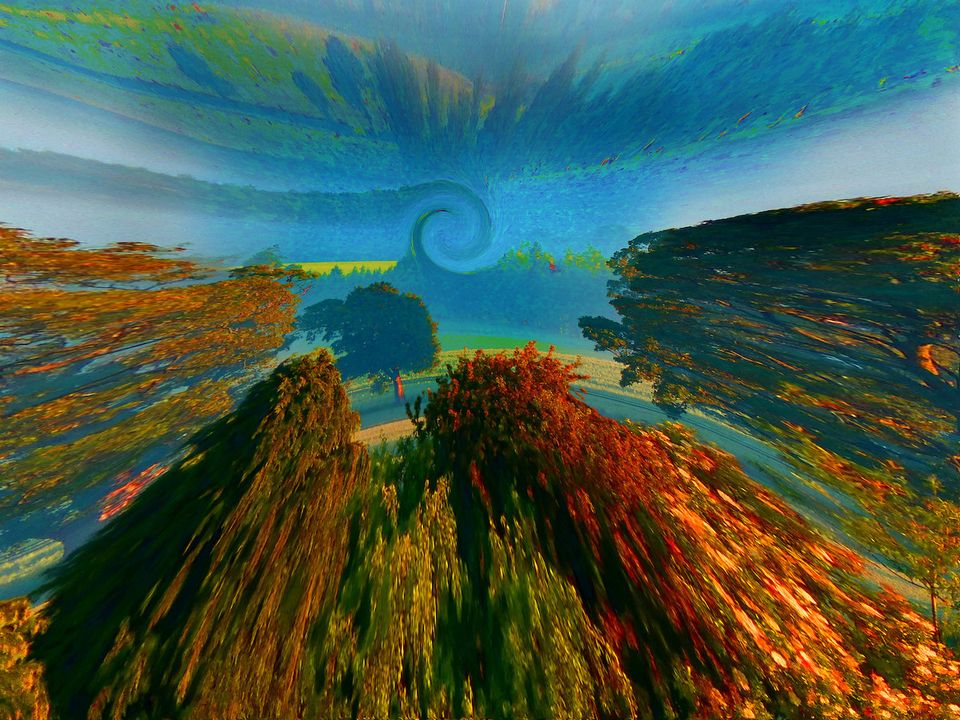
When we expect something to happen or someone to do something, we create resistance to the natural flow of infinite possibilities.
Expectations are artificial projections onto the external world about something we want to force into being — either unrealistic expectations of ourselves or limitations we attempt to umbrella over others.
Expectations Nourish the Ego’s Need for Control.
Expecting something to happen or someone to do something is out of alignment and discordant with the natural order. To say this differently, just because you wish it were so, doesn’t mean you have magical powers to manifest your expectation.
Expectations are narratives grounded in presumptions and projected into a conditional future.
This oppressive intention constricts the connection to universal creativity and the natural state of flow.
Imagine stepping into a rushing river. You grab at the water rushing downstream in a vain attempt to manipulate its natural course. You cannot control a rushing river with your bare hands — your plans for water domination will come to naught!
The same is particularly true of having expectations of yourself or others. Generally speaking, expectations are the impositions we place on others which make them unrealistic.
Most expectations sound something like this:
This person had better do what I told them to do because…
Expectations limit the possibility of an organic outcome which is why they can never be perfectly met.
The conditions of expectations are rigid demands made by the ego which is seeking control and validation. This is why we have the expression that goes something like,
You will never live up to the expectations they have of you.
Expectations Are Contrivances of the Ego.
The ego is the source of disconnection from others and separation from the natural world.
When you place conditions on what you expect of others, like your dog, the economy, the election, or your partner, you are trying to control that which you cannot in an attempt to meet your selfish needs.
Like trying to control the river with your bare hands, you cannot control what another person thinks or does, just like you cannot control the weather or the stock exchange.
This is an example of going against the current. Metaphorically, this makes your life difficult, unconscious of your ego’s stubborn need to win against the odds. But it’s a losing battle and working against the current is a significant clue to what’s wrong with this approach.
Selfish needs can only be met by the self.
Your expectations are never mutual — they are always one-sided and exclusively your problem.
When you want to work with someone else to solve a mutual problem, consider an agreement. With agreement, you create a human connection allowing the other person to accomplish the outcome in their own natural and creative way.
Like goal setting, if you are too attached to an exact outcome (which is an egotistical expectation) you might be disappointed or frustrated if you don’t manifest the goal exactly as planned.
We cannot control the outcome. We can only control the choices we make for the action we are taking in this infinite, present moment.
A little over a decade ago I had a problem. I needed a lot of attention and validation that I often mistakenly got from sex and sexual attraction. This led to many expectations of what “I thought I needed from others.” I dated a guy for a few months who was emotionally toxic and borderline abusive, but I stuck with him because when he wasn’t sober, he was kind, gentle, and vulnerable — deepening my connection with him.
You probably guessed that it ended badly, and it did. Not only was I an emotional mess, but I was even needier! Six months later I adopted a 5-year-old Boxer dog from a friend who could no longer care for him. Buster became my best teacher — something I didn’t realize until a year or so after bringing him into my life. He taught me that no matter how much I expected him to follow a command, that’s not how it worked, especially since I didn’t speak his language.
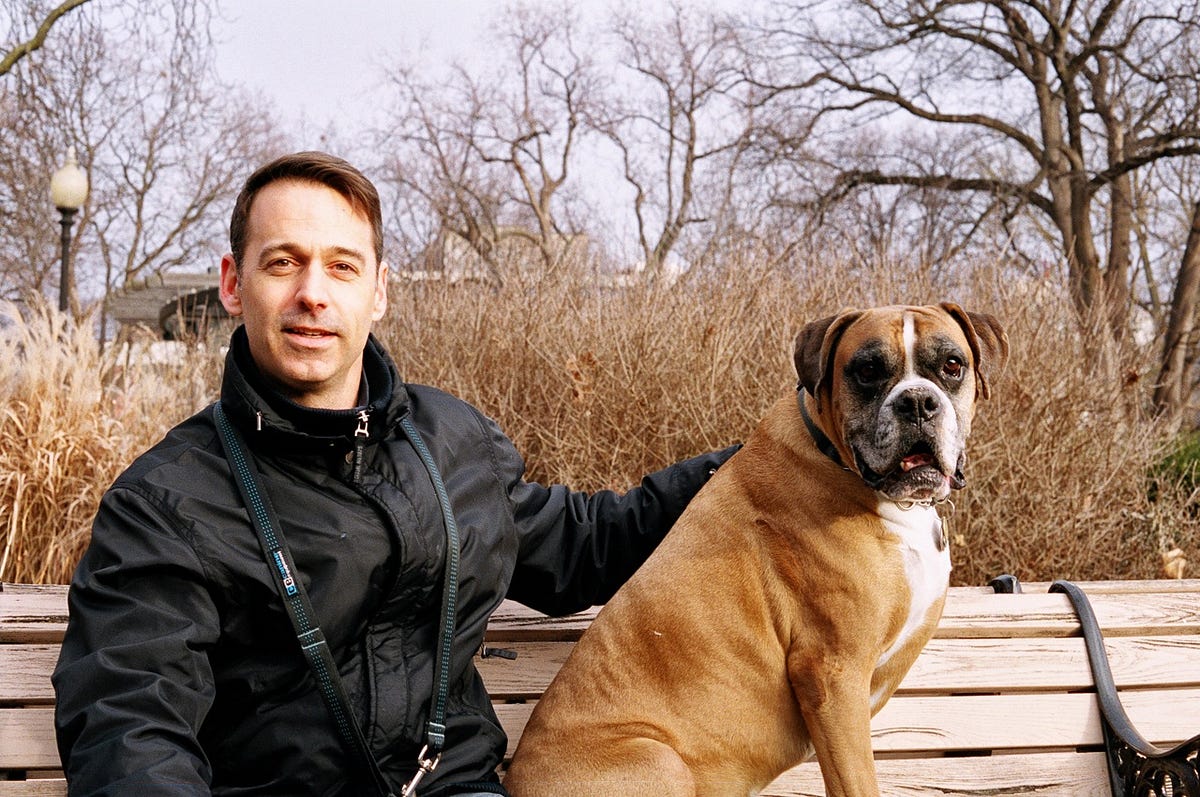
It was only through the development of patience on my part did he respond with improved behaviour. What Buster taught me was the dance of going with the flow, and the more I understood his “true nature” the more he followed my lead — as if it were the most natural thing to do.
Most importantly, the lesson of patience taught me a lot about the number of expectations I put on myself during that time for all sorts of outcomes and performance. Practicing patience allowed me to catch myself in expectation, which lead to more self-acceptance and the personal responsibility of taking care of my own needs — like I wrote above, selfish needs can only be met by the self.
The Natural State of Flow — The Antidote to Expectations
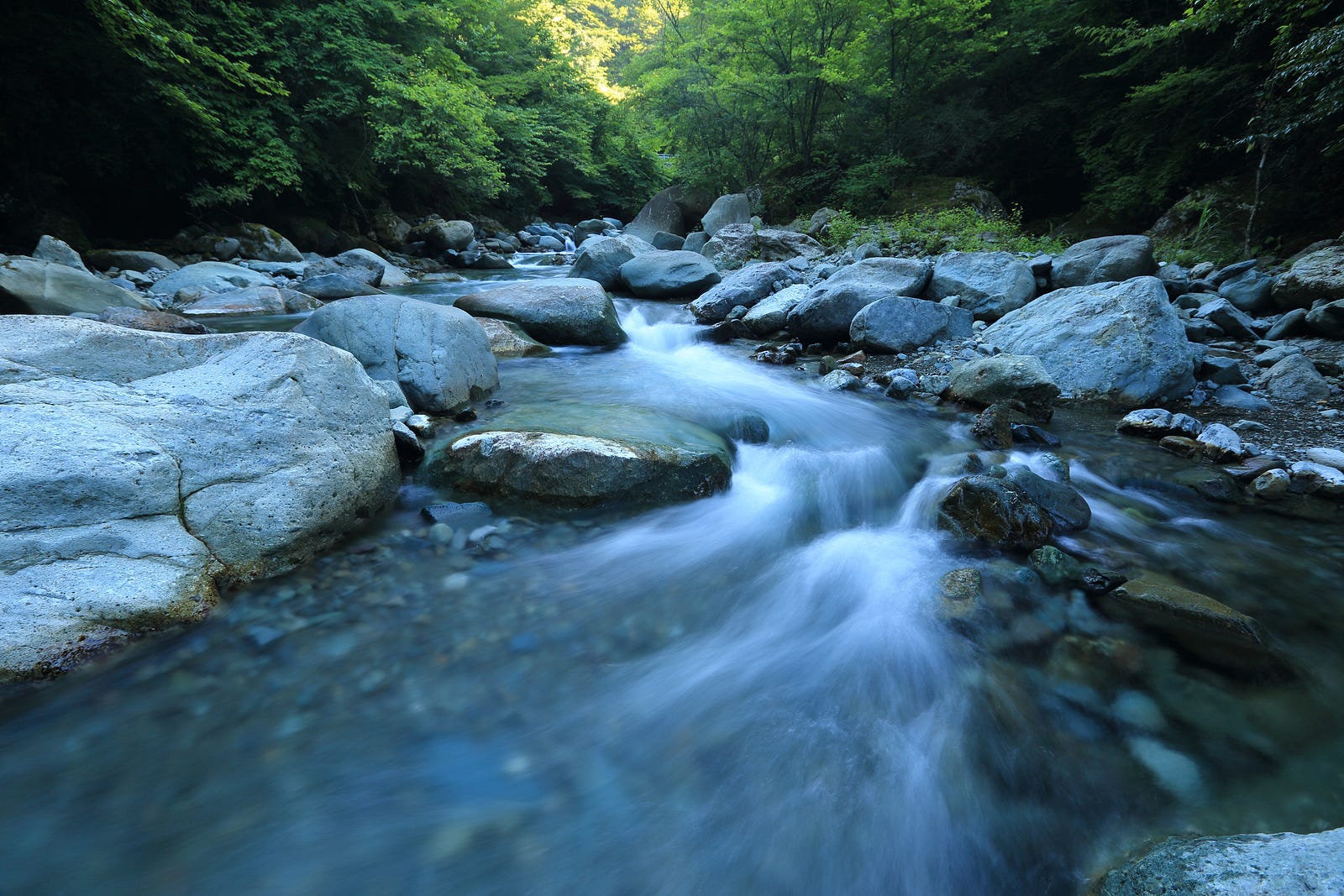
Imagine, again, our flowing river, the one you tried to control with your bare hands.
Stand at the river’s edge and watch it flowing effortlessly downstream over, under, and around all the rocks and fallen tree branches in its path. Even if it were to encounter a massive impediment, it would collect and rise to meet the point at which it will flow over.
All this happens without any apparent effort, regard for time, or any other condition. Water flows dispassionately, without expectations for how or where it will flow.
The state of creativity is the highest form of humanity.
Flow state is the concept of being immersed in the present moment of fluid, creative expression.
In flow, you lose all sense of time and place. Just like water, you flow freely and without hindrance in the present moment of your creative endeavour (be that writing, singing, drawing, teaching, exercising, and so on).
Imagine that you now impose deadlines, ideals, restrictions, conditions — aka expectations upon your creative flow. How does that feel? Do your expectations suck the life out of the free-flowing, non-controllable state of pure creativity?
Our Awareness of Ego Sets Us Apart From All Other Beings.
Humans appear to be the only beings on this planet that have an ego. It is our ego that seeks to define and identify, starting first with “I” and then what is mine: my name, and all the thing I want to protect or possess.
Our ego, which sets us apart from other beings, is in opposition to oneness, which could be considered the primary duality of humanity.
Without this duality, we would not be aware of our inborn nature to exist harmoniously with the natural world — the natural order of the universe — to experience the oneness of all things, versus the separation from others out of fear, self-importance, or protection of property.
Oneness is the awareness that we are of this world and that we play a part in its machinations.
The world is in us as much as we are in the world. We are all part of this organic entity called, Earth. It is only our ego which acts as an impediment to oneness. It separates us from the natural order and seeks to manipulate it for selfish reasons, rather than to work with it, naturally and equitably.
Our natural state is one of allowing.
This is a state of mind and a deeply felt awareness of not forcing that which we cannot control.
When we lead our lives without expectation, there is nothing to be evaluated, measured, or recorded in a competitive sense.
Good things happen and show up in your life when you “least expect it” because you have no expectations — no ego-based limitations about what you are willing to accept or tolerate. Instead, you simply allow what happens to happen while concurrently doing what you do best — being your most creative self.
Good fortune happens with present-moment intentionality and attention to what you are doing.
Your present-moment focus facilitates progress — something you can see as manifest when you look back at what you have accomplished versus measuring against expectations created in the past against a future you cannot control.
You can only be in this moment, now, doing one thing with intention and attention.
Anything else is based on the ego’s emotions of worry (past-based events) or fear (future-based expectations). Our ego lives outside the present moment and seeks to control the world from outside the self.
We are naturally creative beings. Creativity is not borne of expectations.
We create effortlessly when in harmony with the natural order — in a state of flow outside the artificial constructs of time and ego — at peace within ourselves, joyfully being and allowing in the present moment.
Image source.
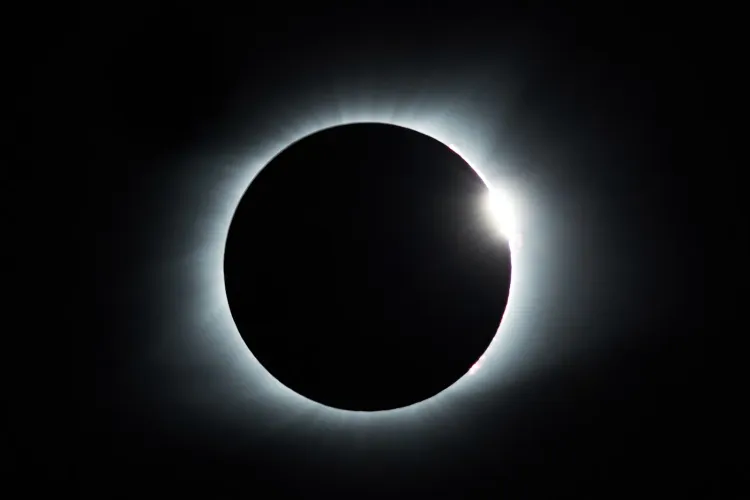
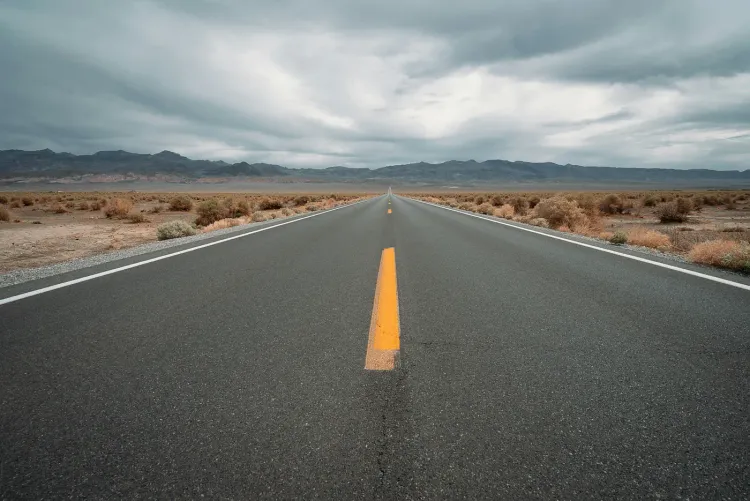
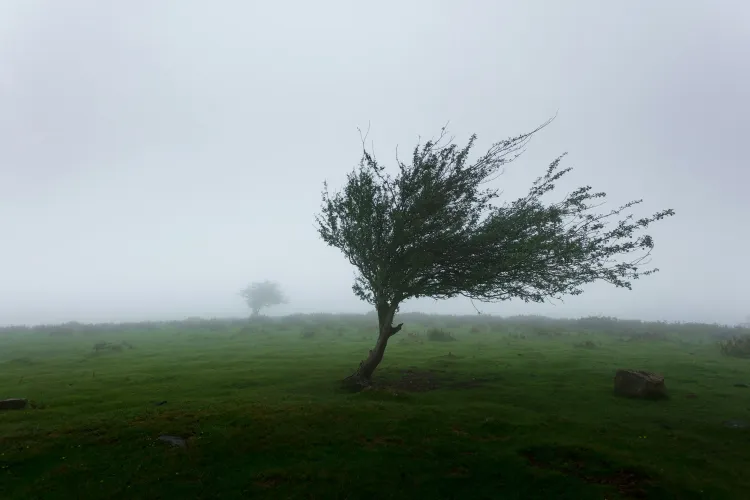
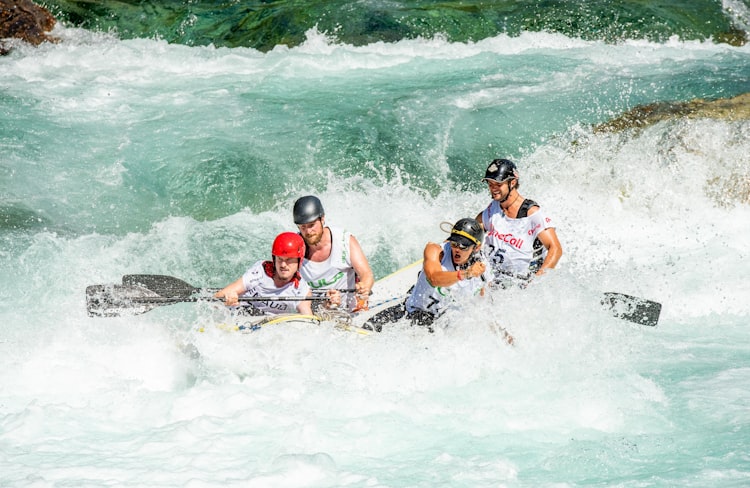
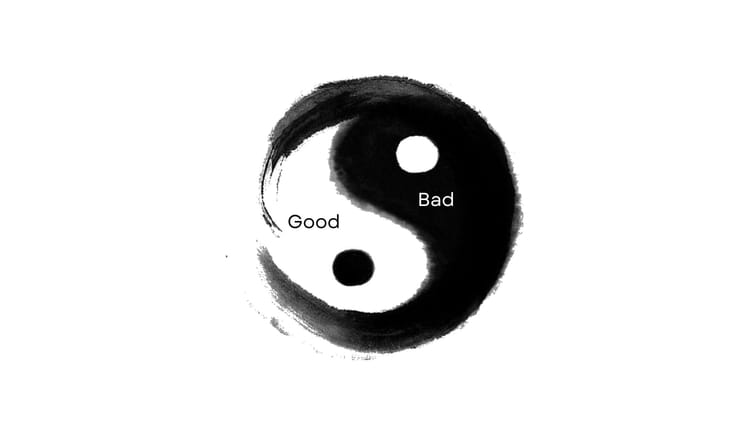
Member discussion